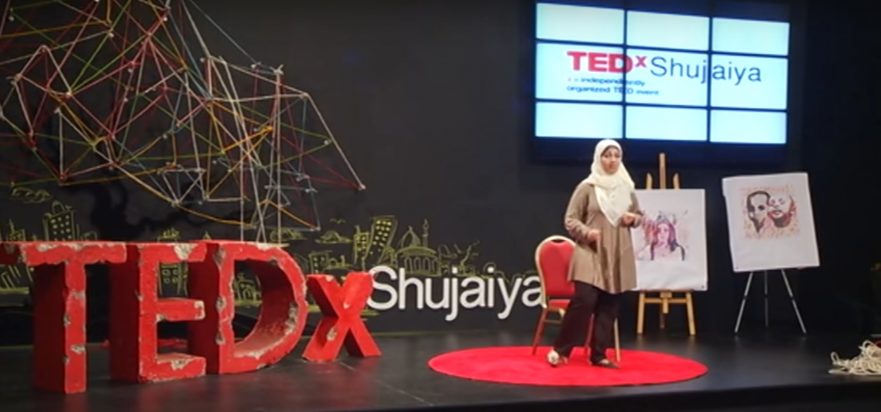by Yousef M. Aljamal*
On July 2, 2019, Gaza artist and community activist Ayah Abdelrahman lost her 10-year-long battle with cancer. Ayah was well known in Gaza (and beyond) for helping cancer patients fight their illness, including by empowering them through the arts.
Ayah is buried in Northern Cyprus , where she died. But she is remembered for her strength, positive energy, arts, and community projects by her many friends and supporters on social media, who recall her role in many projects in Gaza.
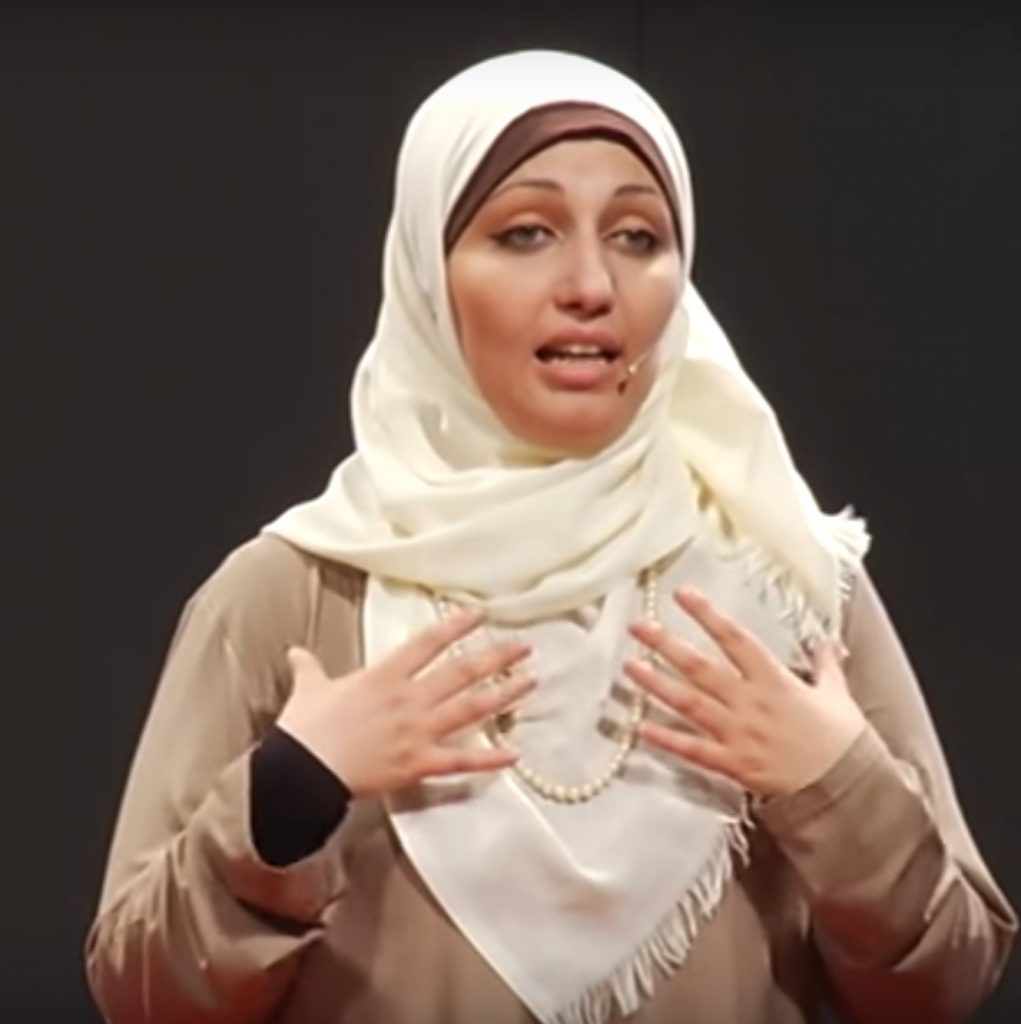
Ayah is well known for the TEDx Talk she gave in November 2015 in which she recounted her struggle with cancer, She was also widely admired for her commitment to using art as a mean to express herself and as a way to help others battling cancer in the Gaza Strip, where patients live exceptionally difficult circumstances.
Ayah gave her TEDx talk at the “TEDx Shujaiya” held in Gaza City, which was extremely badly hit during Israel’s 2014 assault on Gaza. It was a remarkable, life-affirming performance. In it, she spoke quite candidly about her own battles with cancer and urged her listeners to remember cancer patients as people and stories rather than numbers and to acknowledge cancer patients as survivors, adding, “We should say today a number of patients have lived rather than have died.”
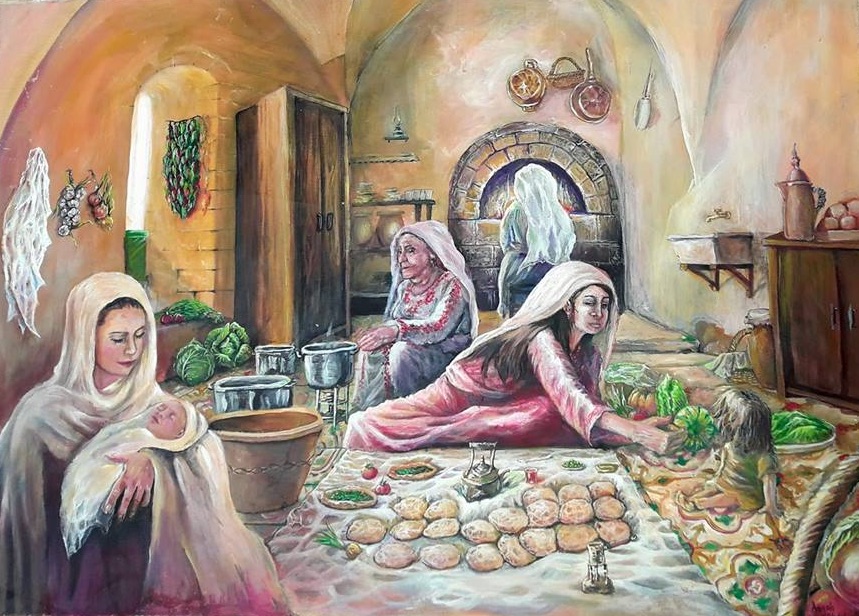
Like many cancer patients in Gaza, Ayah had difficulty in getting medical coverage, which put her life in imminent risk. After much delay– which prompted some doctors to warn her family that she might die if the surgery she needed was not performed in a few hours– she was finally lucky enough to obtain the medical care she needed. Ayah had prevailed and came back again to life, embracing it even closer.
She was remembered for her positive energy everywhere she went, stealing people’s hearts with her charming smile, despite her long struggle with cancer.
Ayah worked on several renovation projects while in Gaza, explaining that,“People who do not know their past, will not have a present or a future.” During her work on these projects, she was happy to meet and talk to a wide range of people, who reminded her of the kindness of Palestinians in Gaza.
Thanks to her paintings on Gaza’s walls, her people have always felt at peace passing by her many works there, which have left a positive impact on everyone in Gaza.
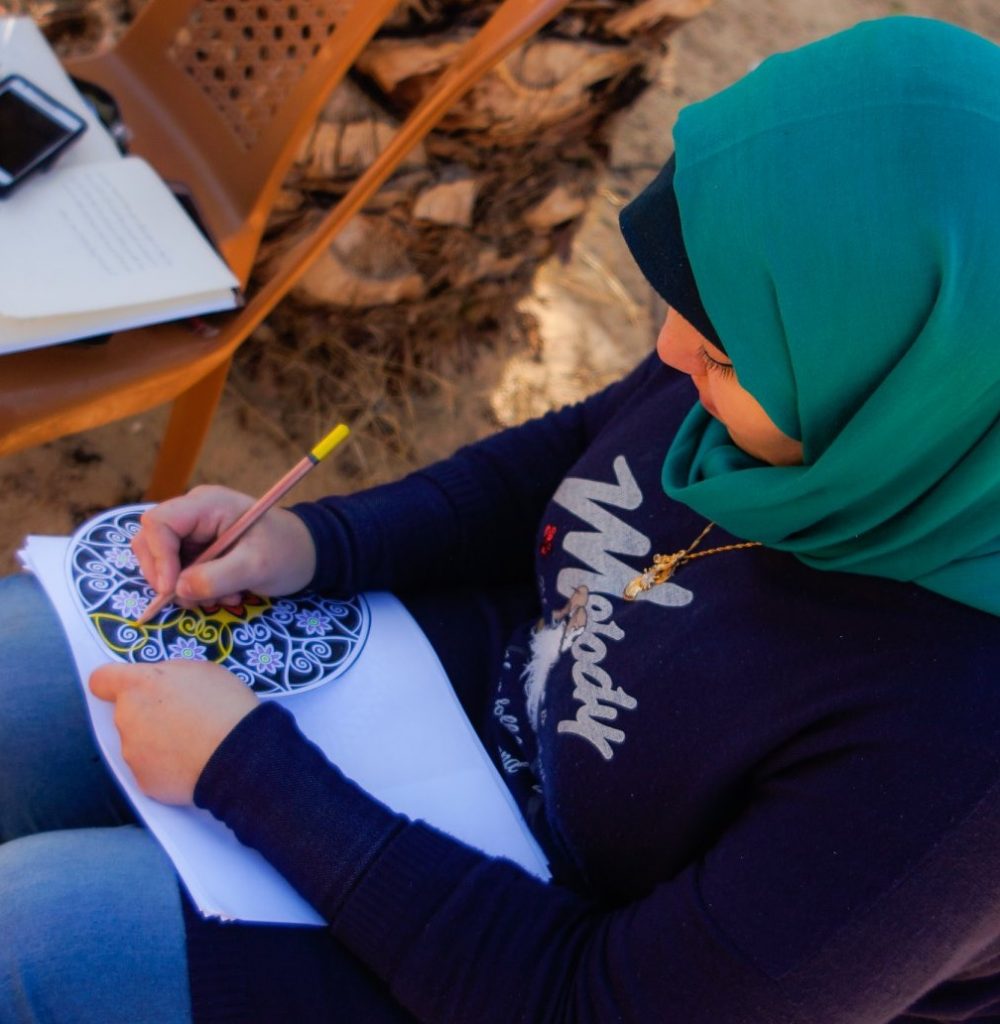
She is remembered for taking part in many art exhibitions in Gaza, including her sole-artist show, the Domes of Jerusalem Exhibition.
She is also remembered by the children she used to work with and train, using drama to get them involved, both inspiring them and being inspired by them. “The most beautiful thing is to see people smiling, that’s the golden period in my life,” she would say.
Ayah always thought of others, even when her own life was at risk, trying to bring life to others, even if that meant her own death. she told doctors that she wanted to donate her organs in case her tumor surgery failed. She wanted “the stories of other people to succeed,” even if her own failed.

She made friends with cancer patients from one to 80 years old. “I used to play and draw with children, our life was chemotherapy and colors. These people are my message,” she said in her TEDx talk. She was always concerned with telling the stories of children with cancer, such as her friend Yara, who battled cancer for four years upon her birth. She was so connected with the reality of the lives of the cancer patients she met that she believed that the art that reflected this could help to battle the cancer.
“The real artist is the one who reflects reality,” she recalled. So did she in her life, drawing the hopes and pains of patients around her.
She never stopped drawing and painting, even on her hospital bed in Northern Cyprus, where her last drawing featured the nurse who was helping her.
Even in Northern Cyprus, she had an exhibition of her art. It was attended by Meral Akıncı, the wife of the Turkish President of Northern Cyprus. Ms. Akıncı later attended Ayah’s funeral, along with many people who loved her for her devotion and her art. The people of Gaza watched the funeral from the other side of the Mediterranean, across which the Israeli siege forbids them to sail.
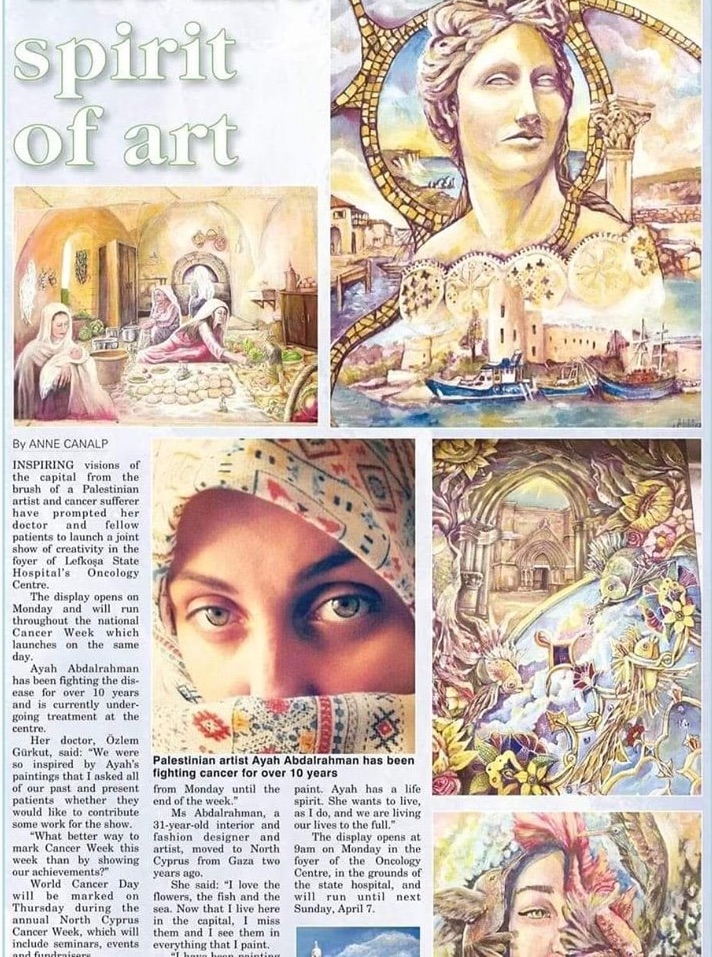
Ayah was so full of energy that, often, people could not believe she had cancer. When people saw her in cancer wards, they thought she was probably accompanying another cancer patient.
She always wanted to be remembered as a successful artist from Gaza rather than a cancer patient. “Don’t stereotype people!” she urged. She was the one taking initiative always, which pushed one of the journalists at one of her exhibitions to ask her “How is the cancer doing?” Unlike Ayah, cancer was not doing well.
“Everyone has his/her own cancer,” she always said. This includes, she noted, “poverty, money and siege.” These cancers, too, limit our dreams and ambitions.
For her, what mattered the most was the impact and feeling one could leave on other people. “Just give me a shoulder to stand on,” she asked people, “but let me be myself!” And she was herself– but also the selves of the many others whom she represented and celebrated in her art, whether in Gaza or in Cyprus, where she thought of her loved ones from afar, sending them her paintings and her love.
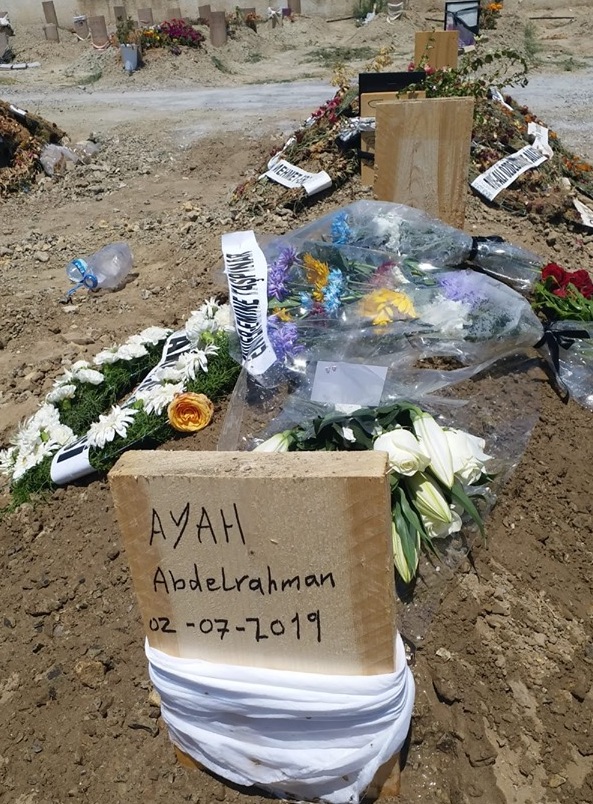
Today, Gaza remembers Ayah Abdelrahman, who conveyed the message of cancer patients through her arts, using her painting to communicate her love and support for those who she cared for. They remember her as a strong fighter, and a fearless heroine, an accomplished artist, who left her legacy on the walls of Gaza and in the hearts of its people, so that she will now be remembered forever.
Art was always the language that Ayah communicated through, including people who spoke a different language than hers, for art is the language of everyone that Ayah had truly mastered.

Today the people of Gaza don’t say “goodbye” to Ayah, but rather “see you later,” maybe in one of her paintings on the walls of Gaza or through her smile that will forever live in their hearts.
Today, Gaza’s patients spell Ayah’s name: A for ambitious, Y for youthful energy, A for able– and H for happy.
—-
Yousef M. Aljamal is a Palestinian refugee who grew up in Al-Nuseirat refugee camp in the Gaza Strip. He is a PhD candidate at the Middle East Institute at Sakarya University in Turkey.

